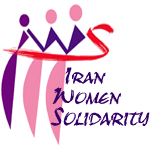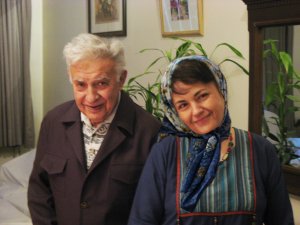INDEX: MDE 13.004/2010 ISSUE DATE: 08 JANUARY 2010
URGENT ACTION UA 006/10
HUNDREDS HELD IN IRAN AFTER ASHOURA PROTESTS
ISLAMIC REPUBLIC OF IRAN
Two women, Leily Afshar and Atieh Yousefi, and one man, Reza al-Basha, are among hundreds of people believed to be held incommunicado following mass arrests on 27 and 28 December 2009, around the Shi’a Muslim holy day of Ashoura. All of those arrested are at risk of torture or other ill-treatment.
The three were arrested during or shortly after anti-government protests across the country, which were violently repressed. At least seven people were killed in or near the demonstrations, apparently by security forces. Leily Afshar and Reza al-Basha were arrested in the Iranian capital, Tehran. Leily Afshar, a 29-year-old photographer, was arrested in the afternoon of 27 December, the day of Ashoura, when she was pulled from her car by plainclothes officials near an anti-government demonstration. She has been permitted to make one telephone call to her family in which she confirmed she was held in Tehran’s Evin prison, in Section 209 which is run by the Ministry of Intelligence. Reza Al Basha, a Syrian national studying in Iran, was arrested separately on the same day. He works as a part-time reporter for Dubai TV, a government-owned TV station in the United Arab Emirates. It is not known where he is being held.
Women’s rights defender Atieh Yousefi, was arrested in the northern city of Rasht, while trying to help a young man who had been severely beaten and wounded by security forces during a demonstration. She is detained without charge in Lakan Prison in Rasht and was allowed to meet her family on 1 January.
ADDITIONAL INFORMATION
Atieh Yousefi is a member of the One Million Signatures Campaign (also known as the Campaign for Equality), a grassroots women’s rights initiative, aimed at ending discrimination against women in Iranian law. It was launched in August 2006 with the aim of collecting a million signatures of Iranians calling for the reform of legislation which discriminates against women.
Ashoura, in the Islamic month of Moharram, is one of the holiest days for Shia Muslims, who traditionally take to the streets to commemorate the death of Emam Hossein, the grandson of the Prophet Muhammad. The day also coincided with the seventh-day of mourning for Grand Ayatollah Montazeri, a senior dissident cleric who had died the week before. Mourners at his funeral had also been arrested (see UA: 347/09, MDE 13/132/2009).
Demonstrations in Iran in June and July against the disputed presidential election result of June 2009 were violently repressed, by police and the paramilitary Basij militia who used excessive force. Since then, demonstrations have continued to take place on days of national importance when public demonstrations are permitted, such as Qods Day (18 September), the anniversary of the seizure of the American Embassy (4 November), and National Student Day (7 December), when hundreds of protestors were arrested, although many were later released.
Many of those arrested during previous demonstrations were tortured or otherwise ill-treated. At least three died as a result of torture in the Kahrizak detention centre near Tehran. On 19 December 2009, a military court in Tehran announced that 12 people had been charged in connection with abuses, three of whom had been charged with murder. .
The security forces’ response to the demonstrations on or following Ashoura was the most violent since the early days of the protest. The opposition website Jaras estimates that at least 1,300 were arrested across Iran, including 600 in Esfahan, 200 in Najafabad and 500 acknowledged by the authorities to have been arrested in Tehran,. Human rights groups say at least 300 detainees are still held in Evin Prison in Tehran and unconfirmed reports suggest others may be held in a re-opened detention facility under the control of the Revolutionary Guards in the Eshratabad complex in central Tehran. The Iranian authorities have made statements suggesting that protestors who “riot” or commit violent acts such as arson will be charged with moharebeh (enmity against God) which can carry the death penalty. On 5 January, five unnamed people were reported to have been charged with moharebeh in connection with the demonstration on Ashoura and may be tried imminently.
The authorities’ have at various times acknowledged between eight and 15 deaths, although later revised the figure down to seven. They have denied that Sayed Ali Mousavi, nephew of opposition leader Mir Hossein Mousavi, was shot by security forces, saying that he was shot in the chest near his house by unknown assailants. Mohsen Makhmalbaf, a filmmaker close to Mir Hossein Mousavi said on 29 December that Sayed Ali Mousavi had received several death threats from unidentified security personnel in the week before his death and that he was shot in the chest by five men believed to be painclothes security forces. At least two of the others killed were reportedly deliberately run over by vehicles said to belong to security forces, although again the authorities have denied responsibility.
Since the demonstrations, well over 180 journalists, human rights activists and members of political parties linked to Mir Hossein Mousavi and former President Khatami are reported by Jaras to have been detained, among them Emaddedin Baghi, recipient of the 2009 Martin Ennals Award, a human rights prize. See UA: 05/10 Index: MDE 13/003/2010
PLEASE WRITE IMMEDIATELY in Persian, Arabic, English, French or your own language:
– stressing that Leily Afshar, Atieh Yousefi and Reza al-Basha, and all those detained, must be protected from torture or other ill-treatment, allowed access to their families, lawyers and any necessary medical treatment and should be brought before a judge without delay so they may challenge the lawfulness of their detention;
– calling for anyone held solely for their peaceful participation in demonstrations on or following Ashoura to be released immediately and unconditionally, and for others suspected of criminal offences to be tried promptly and fairly without recourse to the death penalty;
– calling on the authorities to ensure the policing of any further demonstrations meets international policing standards, including the use of firearms only as a last resort where strictly unavoidable in order to protect life and urging that an impartial investigation be conducted into the deaths of all those killed.
PLEASE SEND APPEALS BEFORE 19 FEBRUARY 2010.
APPEALS TO
Leader of the Islamic Republic,
Ayatollah Sayed ‘Ali Khamenei,
The Office of the Supreme Leader,
Islamic Republic Street – End of Shahid Keshvar Doust Street,
Tehran,
Islamic Republic of Iran.
Email: info_leader@leader.ir
via website: http://www.leader.ir/langs/en/index.php?p=letter (English)
(Salutation: Your Excellency)
Head of the Judiciary,
Ayatollah Sadeqh Larijani,
Howzeh Riyasat-e Qoveh Qazaiyeh (Office of the Head of the Judiciary),
Pasteur St., Vali Asr Ave., south of Serah-e Jomhouri,
Tehran, 1316814737,
Islamic Republic of Iran.
Email: Via website: http://www.dadiran.ir/tabid/75/Default.aspx
First starred box: your given name; second starred box: your family
name; third: your email address
(Salutation: Your Excellency)
COPIES TO
Director, Human Rights Headquarters of Iran,
His Excellency Mohammad Javad Larijani,
Bureau of International Affairs,
Office of the Head of the Judiciary,
Pasteur St., Vali Asr Ave. south of Serah-e Jomhouri,
Tehran, 1316814737,
Islamic Republic of Iran.
Email: bia.judi@yahoo.com
Fax: + 98 21 5 537 8827 (please keep trying)
Ambassade de la République Islamique d’Iran,
Thunstrasse 68,
Case postale 227,
3000 Berne 6.
Fax: 031 351 56 52
E-mail: secretariat@iranembassy.ch

